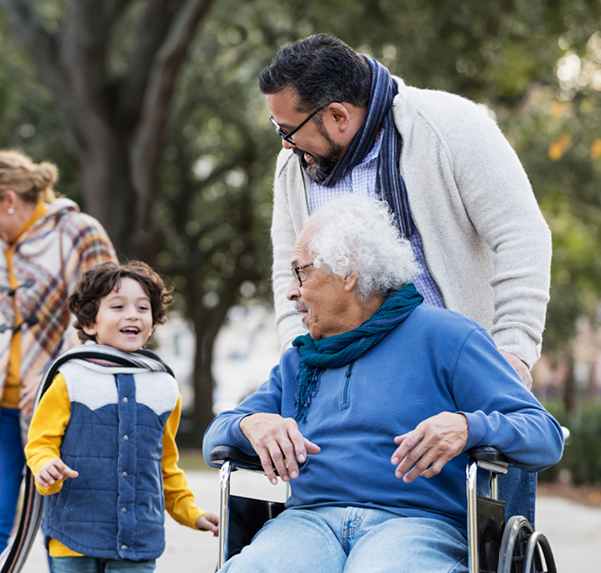Phoenix metro resident Karen Lopez remembers a time not long ago when she didn’t know where to start when searching for care for her daughter Iracema, 5, or herself.
“It was hard to find good doctors around the Valley,” she said. “It was hard to find appointments in time just for flu shots or COVID, boosters, anything like that. They were really packed with everything going on.”
Things became much easier for Karen and Iracema when Karen’s sister introduced them to a Valle del Sol mobile care unit. There, they had immediate access to a flu vaccine, which helped Iracema stay well and maintain school attendance, and helped Karen avoid missing work.
“They're very caring for [Iracema], which is my first priority. I mean, she’s 5. She's scared to go to the doctor,” Karen said. “We’re comfortable with them because they are very caring people and they understand where we're coming from. A lot of them are mothers and parents.”
Making an impact
Mobile care units like the one Karen and Iracema visited are part of a $3 million partnership announced in 2021 between the United Health Foundation and Valle del Sol Community Health to advance health equity by improving school-age children’s access to integrated health care — an approach focused on collaboration and communication among health professionals.
Valle del Sol aims to fill a gap in behavioral health and social services to the Latino community and underserved populations. Arizona ranks 45th of 50 states for children who receive well-child visits, and 47th of 50 for children with a “medical home” that provides ongoing, comprehensive and non-emergency care, according to the America’s Health Rankings 2022 Health of Women and Children Report.
Since the partnership began, families in underserved communities throughout the greater Phoenix metropolitan area have benefitted in many ways:
- Nearly 2,000 students are receiving health services.
- 818 students have received immunizations.
- 954 students have been screened for anxiety, depression and/or ADHD.
- 1,430+ students have been connected to a behavioral health provider.
- Those receiving treatment have seen a decrease of nearly 8% in anxiety symptoms.
Bringing care to the Valley
Just like Valle del Sol’s brick-and-mortar clinic, the mobile units bring ongoing primary care, psychiatry and behavioral health services directly to middle- and high-school-aged children in school settings when appropriate — or via telehealth.
“Having the mobile units in our community has made a radical change in access to care,” said Valle del Sol’s Walter Vidal. “Being able to reach those who perhaps do not have access to a health system or a health provider nearby and do not have a way of getting to that health care provider has been a complete game changer for us and for the community here in Phoenix.”
Commitment in action
“The Valle del Sol partnership is one example of how the United Health Foundation is working in partnership with outstanding organizations to deliver on our commitment to advancing health equity and improving access to care,” said Kristy D., chief nursing officer at Optum. “We are so pleased to see the initial outcomes from this work, which helps families and children get the care they need to thrive personally as well as academically.”
Learn more about how we’re enabling and delivering equitable care that reduces health disparities and improves health outcomes:

Share This Story